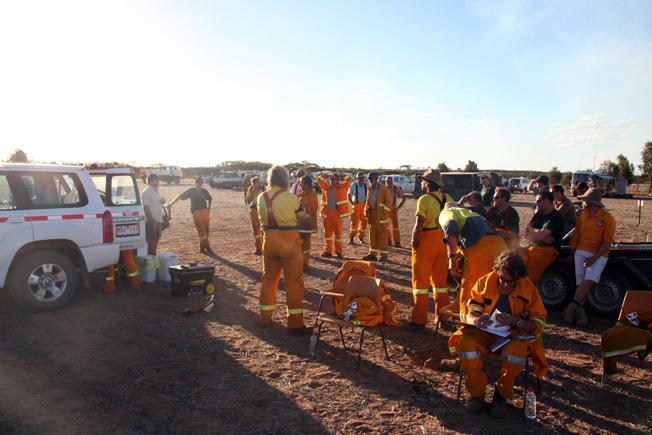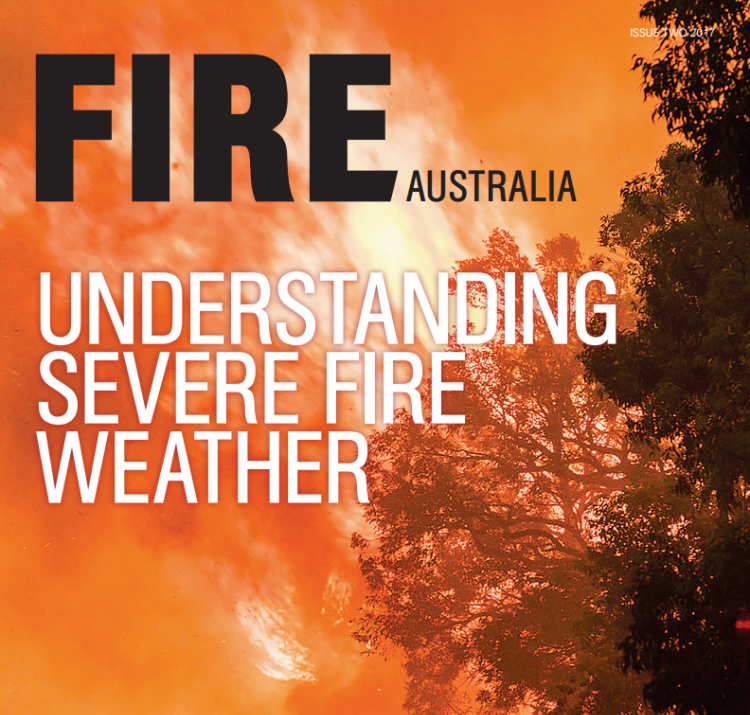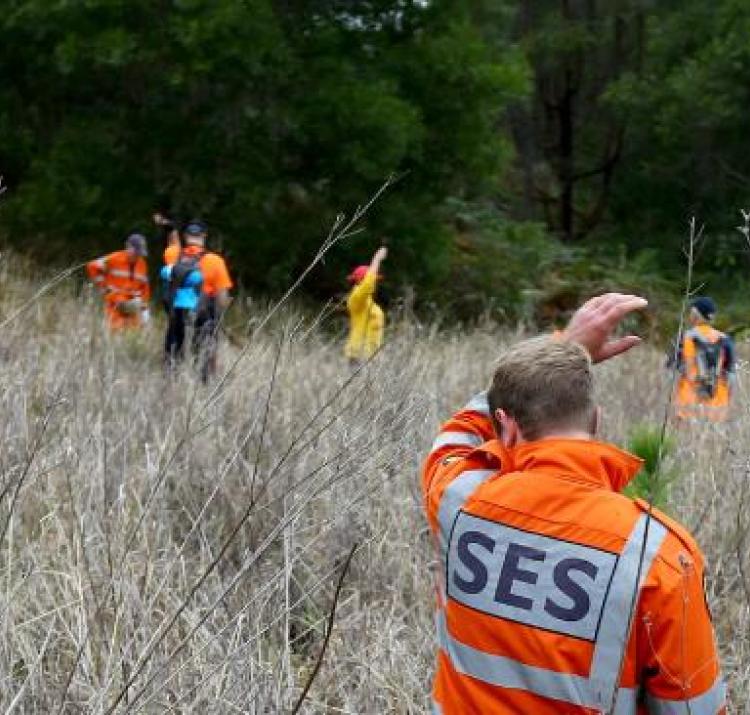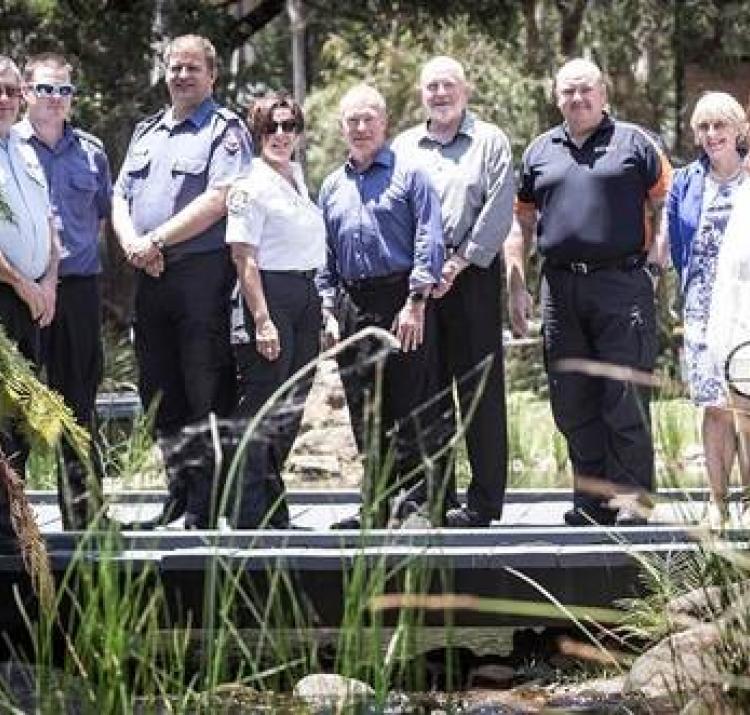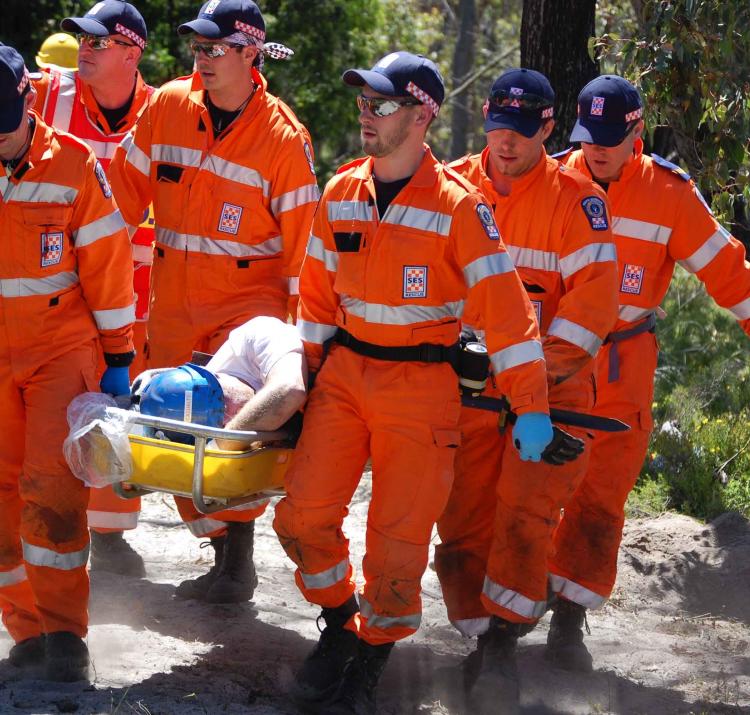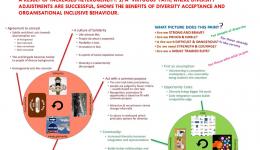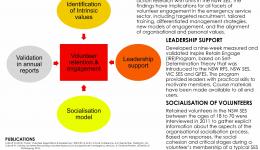Research leader
Research team
End User representatives
Student researchers
It is economically impractical to employ the number of emergency service workers needed to adequately respond to fires, storms and floods. As a result, Australia benefits from the support of around 235,000 emergency services volunteers.
Volunteer brigades and units are managed by the volunteers themselves. This quasi-independence of volunteer groups – in contrast to the corporate environment of paid staff in a regional, district or head office – can sometimes cause tensions, especially related to communication and authority along hierarchical structures. However, these tensions also occur within volunteer groups, where effective leadership is a critical element for job satisfaction and for the retention of recruits. Many volunteer-based emergency service agencies experience high rates of volunteer turnover, in some cases as high as 20% each year. At times, up to half of all new recruits leave within the first two years.
Volunteer turnover is an economic liability to volunteer-based agencies. Training, uniforms and protective equipment are expensive. More importantly, volunteer turnover has a bearing on operational capacity, flexibility, resilience, and to some degree, morale. Research on poor volunteer retention is therefore valuable.
Finding out why this happens – and developing ways to improve volunteer retention – was the focus of this study. While the team determined there was no need for a leadership program per se, because most agencies offer a variety of programs that meet the traditional needs of leadership development, self-determination theory has been identified as a simple method to introduce to volunteer leaders.
Self-determination theory recognises that people have three basic psychological needs for optimal functioning and wellbeing:
- Autonomy – having the opportunity to express personal initiatives and ideas
- Belonging– perceiving themselves to be part of the group
- Competence – feeling effective through positive feedback and appropriate training.
A nine-week program, called Inspire.Retain.Engage, was developed, which consisted of:
- One day of learning about leadership, self-determination theory and generation of ideas
- Nine weeks of on-the-job application and active reflection on the principles of self-determination theory with the support of an online mentor
- A final day of reflection and sharing within communities of practice.
The program was piloted with volunteer leaders in 2014 with the NSW State Emergency Service and the NSW Rural Fire Service. It was delivered again in 2016 to volunteer leaders and staff of Victoria State Emergency Service and Queensland Fire and Emergency Services.
The Inspire.Retain.Engage training and the use of self-determination theory improved the retention rate of volunteers, as shown by the statistical effectiveness of the program on behavioural change in the participants, job satisfaction and turnover intention of team members.
The program is available to all emergency service agencies in Australia.
| Year | Type | Citation |
|---|---|---|
| 2017 | Conference Paper | Organisational socialisation of volunteers in an emergency services agency. AFAC17 (Bushfire and Natural Hazards CRC, 2017). |
| 2016 | Report | Improving volunteer recruitment and retention: Annual project report 2015-2016. (Bushfire and Natural Hazards CRC, 2016). |
| 2015 | Report | Improving the retention and engagement of volunteers in emergency service agencies: Annual project report 2014-2015. (Bushfire and Natural Hazards CRC, 2015). |
| 2015 | Report | Improving the Retention and Engagement of Volunteers in Emergency Service Agencies Annual Report 2014. (2015). |
| Date | Title | Download | Key Topics |
|---|---|---|---|
| 27 Mar 2014 | Sustainable volunteering |
|
capability, recruitment |
| 10 Apr 2015 | Sustainable Volunteering 2015 NSW RAF Presentation |
|
volunteering |
| 10 Jul 2015 | Ensuring volunteering is sustainable |
|
non-traditional recruitment, resilience, volunteering |
| 17 May 2016 | Improving the retention and engagement of volunteers in emergency service agencies |
|
communication, emergency management, volunteering |
| 18 Apr 2017 | Improving the Retention and Engagement of Volunteers in Emergency Service Agencies |
|
recruitment, volunteering |
| 30 May 2017 | Fire Australia Issue Two 2017 |
|
flood, severe weather, volunteering |
| 07 Sep 2017 | Organisational socialisation of volunteers in an emergency services agency |
|
emergency management, recruitment, volunteering |

